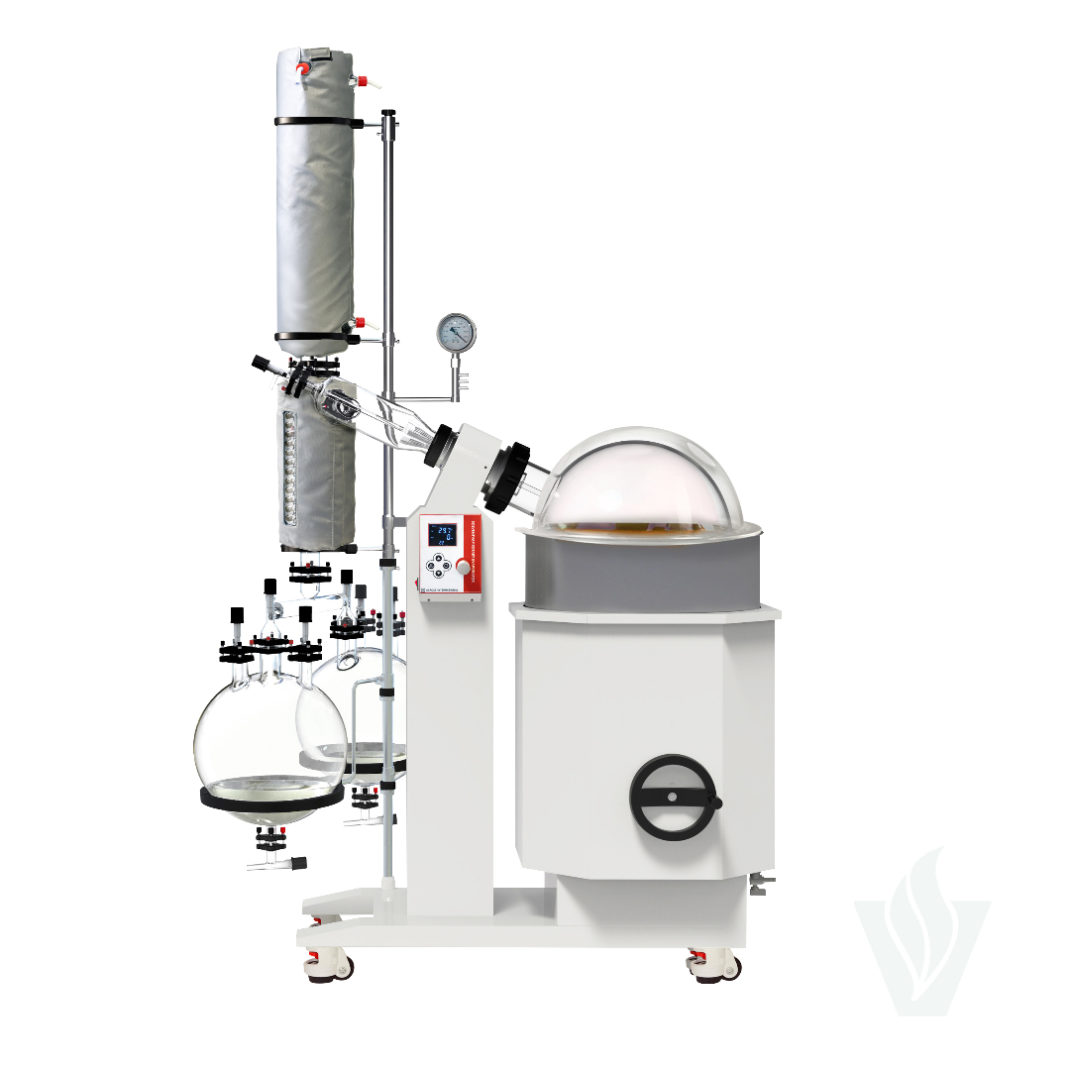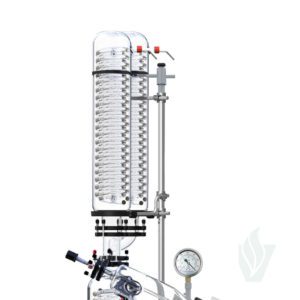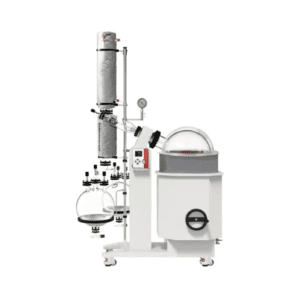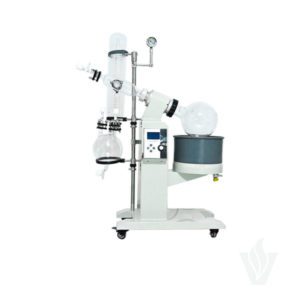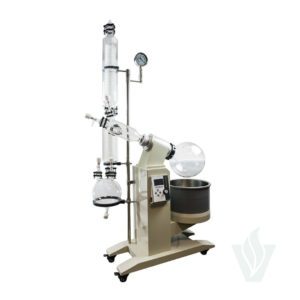E-LAB ROTARY EVAPORATOR W/ ETL CERTIFICATION – 50L
Pricing updates in progress, contact our team for an accurate quote.
ETL-certified rotary evaporators that meet UL/CSA requirements. Most municipalities require this certification, which also ensures higher safety standards and a longer equipment lifespan.
Why an e-lab Rotary Evaporator:
All e-lab rotary evaporators or rotovaps, come with PTFE valves to ensure solvent resistance. Rapid heat-up is made possible by its optimized bath volume. Glass tubes used in the condenser unit have been designed to optimize surface area, thereby increasing evaporation efficiency. A rotary evaporator features a motor and worm gear designed for constant rotation at speeds up to 130 rpm. A thin layer of liquid is constantly transferred over the entire inner surface of the flask containing the solvent. The water bath gently heats the surface, creating a large area for evaporation. Special seals on the rotating system enable it to be placed under vacuum, which reduces the boiling point of the solvents and removes the vapour phase, thereby increasing efficiency. Moreover, each unit is equipped with a vacuum release that is easy to use, which allows continuous feed. The digital water bath operates from ambient temperature to 99C (210F) with 0.1C step-by-step temperature control. Should the controller fail, the overheat protector will shut down the power. Standard Glassware Set contains a 50L round-bottomed evaporating flask, a 25L round-bottomed receiving flask, and a vertical condenser. Distilling solvents with higher boiling points are made easier by rotary evaporators with vertical glass condensers.
About Rotary Evaporators:
Rotary evaporators (sometimes referred to as Rotavap or Rotovap) are used primarily to evaporate the solvent from samples under reduced pressure. Reduced pressure, or vacuum, is achieved by using a lab-grade chemical-resistant vacuum pump. Reduced pressure in the apparatus causes the solvent in the 'boiling flask' to boil at a lower temperature than at atmospheric pressure. This method of solvent evaporation is ideal for the Cannabis industry due to Cannabinoids and Terpenes tendency to degrade when exposed to high temperatures. Furthermore, Rotary Evaporators require a chiller that is plumbed into the 'chilling coils' where the solvent vapour is phase-changed to a liquid and recollected in the 'receiving flask.' If done correctly, the solvent recovered will be pure and can be reused in the same or different application. It can be challenging to choose the right setup for your lab due to the wide variety of sizes, manufacturers, and prices of rotary evaporators. This is where Evolved Extraction Solutions can assist.

